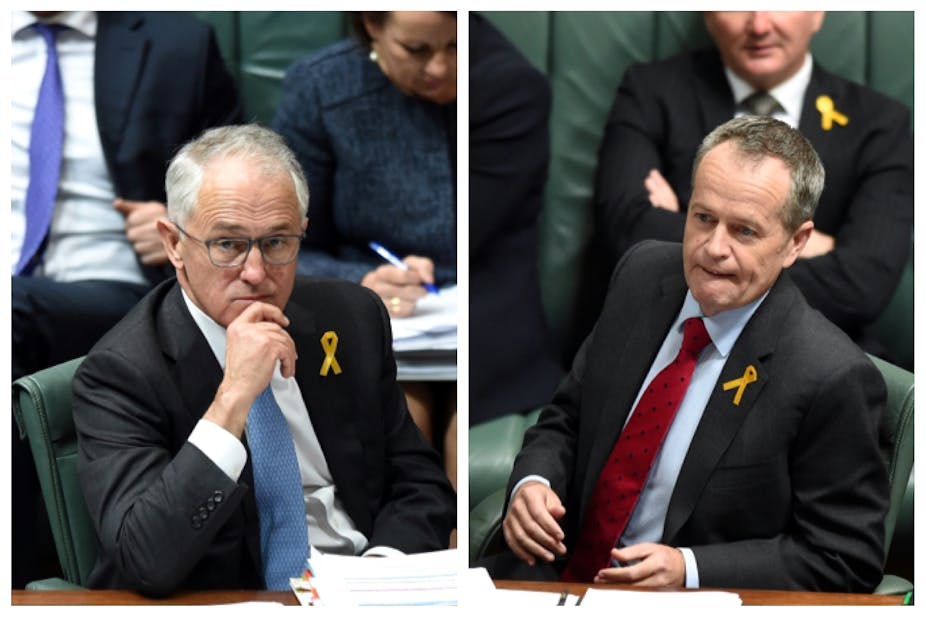There’s speculation the government might be willing to reach out to Labor to save its same-sex marriage plebiscite from being killed in the Senate. But no-one should be getting too excited.
Malcolm Turnbull said on Friday in a broad statement: “The reality is the Australian people elected the 45th parliament, we do not have a majority in the Senate, we will need to negotiate and compromise on most issues to get legislation through the parliament.”
Attorney-General George Brandis on Sunday told Sky that just as there had been a successful outcome in relation to the omnibus savings bill, “then of course we are prepared to talk to the opposition and deal with them in good faith if the opposition is prepared to talk to us and deal with us in good faith”.
But he also pointed out the plebiscite was a simple issue in comparison to some others – thus presumably less open to obvious compromise.
If there was a mind for compromise what could be offered, and would it be enough to get ALP Senate support?
In theory, changes could include tighter controls on the content of advertising to guard against inflammatory material, reductions in the level of public funding – critics oppose any such funding – or alterations to the question’s wording. In practice such changes would likely be variously unacceptable to government or opposition.
One substantive inducement might be a so-called self-executing plebiscite. This would have the legislation to set up the plebiscite be in the form of changing the Marriage Act to provide for same-sex marriage, contingent on that change being ratified by the people at the popular vote.
But going down this road would be extremely fraught for Turnbull. It would buy an immense fight with the conservatives in the Coalition. Just when his fortunes seem to be looking somewhat better, with wins over the savings legislation and (with his own backbench) on superannuation, it would be potentially dangerous for him to open up such a battle.
Even if that compromise were offered, it would be difficult for Bill Shorten to accept it.
Shorten has already signalled he expects to recommend to the caucus that the plebiscite legislation be voted down. There would have to be a compelling case for him to do a U-turn.
While Labor has made something of the fact that Coalition MPs would be able to cross the floor on enabling legislation after a successful plebiscite, this is not its main point in opposing the popular vote. It knows full well the enabling legislation would get through, even if a few conservatives did vote against it.
Labor’s core opposition is to the holding of the plebiscite at all – its grounds are that the issue should be decided by a parliamentary vote and the campaign would be nasty and divisive.
In the last few months feeling in the LGBTI community has hardened against a plebiscite, although opinion is not unified. If Shorten walked back from his rejection of the plebiscite he would find himself under fire from many in that community and indeed from those within Labor who are deeply opposed to one.
While on some issues compromise will be to the advantage to both sides in this parliament, on the plebiscite it seems unlikely it would serve the interests of either Turnbull or Shorten.
If the plebiscite legislation is defeated it will not be a disaster for Turnbull, who can say “I tried” and won’t have to deal with a campaign. Shorten will keep faith with the majority of the LGBTI community and have ownership of the marriage equality issue for the future.

